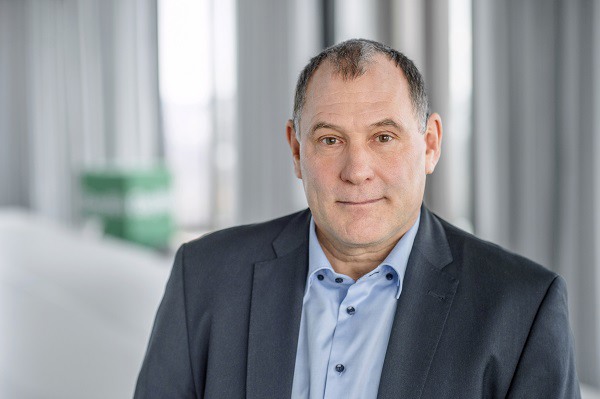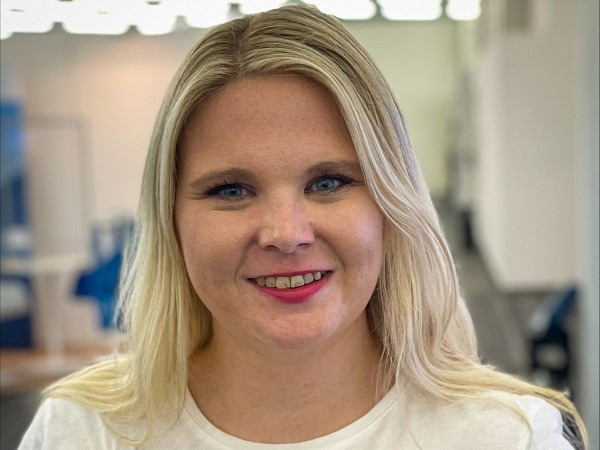In a webinar hosted by Keelings Knowledge, Julia Baumanns, Technical Delivery Manager at Microsoft, and Tobias Fausch, CIO at BayWa, talked about future technologies in the fresh produce industry. Baumanns leads a pan-European team working on digital transformation, while Fausch works in sustainable energy at BayWa. The webinar was moderated by Eva Schröder, sales and marketing manager at Keelings Knowledge.
Among the topics discussed was the extent to which the fruit and vegetable industry could benefit from the use of artificial intelligence and process automation, and the extent to which the industry would need to adapt technologically. While the fruit and vegetable industry is already using quite a lot of IT at the moment, it is clearly lagging behind other industries, Eva Schröder said. "The need to move with the times; to go digital is important. Ultimately, the industry also needs to become increasingly digital." Tobias Fausch from BayWa
Tobias Fausch from BayWa
Artificial intelligence (AI) is here to stay
Fausch is convinced that AI will become established. However, he says it will continue to rely on data inserted by humans and is by no means an autonomous intelligence. "AI is already being used to detect defects on products, or unripe fruit," Fausch said. However, he claims that for a farm to become a market leader in this area, not only the industry would have to evolve but AI's themselves.
Baumanns takes a similar view. AI can be a driver for innovation, research and can definitely make a difference competition-wise. In this regard, she mentioned Microsoft's FarmBeats software, a cloud for customers in the fruit and vegetable industry that can collect and process data in real time. "AI, however, is only as good as it is users. If you don't know how to use data, it will not do you much good." At the same time, she said, the use of AI can also provide businesses with new employees, such as data analysts.

Julia Baumanns from Microsoft
"Data is the new oil"
Baumanns stresses that understanding data processes in companies is important. Baumanns echoed a well-known mantra in the tech industry, saying: "Data is the new oil." The "customer experience" in particular, but also the "employee experience," can be enhanced by processing data correctly, she said.
Fausch agrees with this, also seeing AI as a way to make certain processes more efficient and streamlined, which in turn saves time and money. "Furthermore, it's also possible to analyze customer participation. It's about improving the customer's experience. It can also be an offer for customers to actively help shape and adjust a company. Through the data a company gains, it can also analyze customer behavior, in order to be able to respond appropriately."
The use of harvesting robots has already created a first step toward automation, he said. Especially in terms of supply chains, there is certainly room for improvement in warehousing/logistics. "At the same time, of course, automation must not increase the company's own CO2 emissions," says Baumanns.
Sustainability and sharing economy
Sustainability and a "sharing economy" are two trends that will remain important topics in the coming years. Sharing economy refers to the idea of previously competing companies cooperating, to combat the effects of climate change. Sustainability means using existing resources efficiently, for example to analyze soil quality.
Fausch emphasizes that the necessity of process automation would have to be measured by how often a particular task is performed, in order for automation to pay off. When there are less than 20,000 repeated tasks per year, there is no need for automation. Process optimization will continue to be a big issue.
Keelings Knowledge is part of the Keelings Group, which was founded by the Keelings family in 1926. The Keelings Group supplies the entire supply chain and focuses on the fresh produce industry. Since 2012 they also provide their software across Europe for external customers such as some production companies, wholesalers, for import and export, and more.
For more information:
Eva Schröder
Keelings Knowledge
Königsallee 60 F
40212 Düsseldorf
Handy.: +49 162 877 5335
Tel.: +49 211 89 03 677
sales@keelingsknowledge.com
https://www.keelingsknowledge.com/de/
